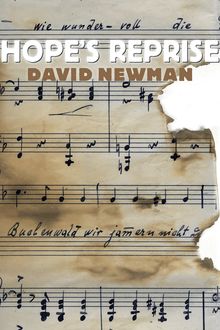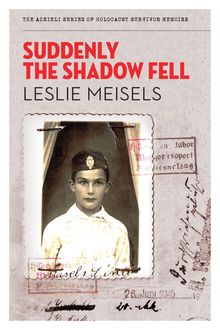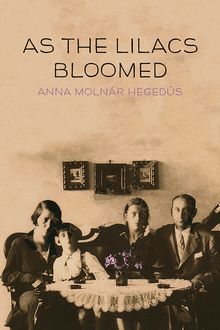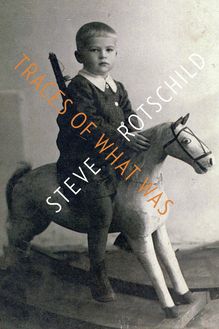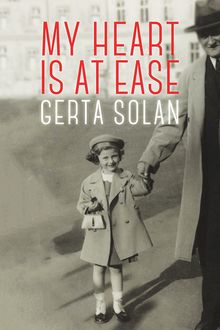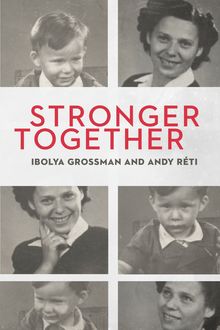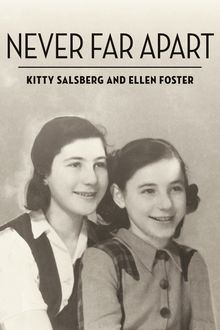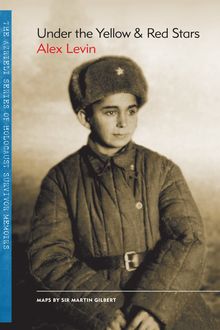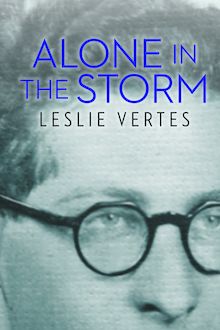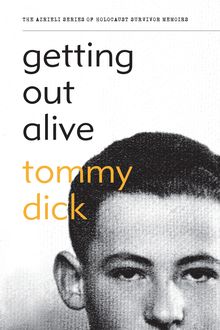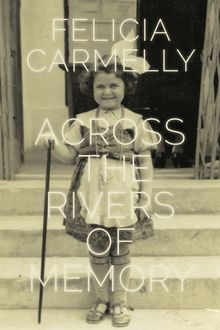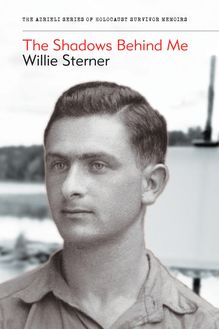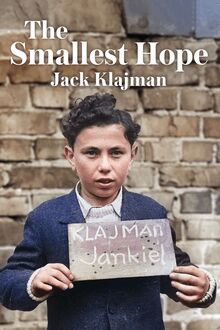If, By Miracle , livre ebook
111
pages
English
Ebooks
2013
Vous pourrez modifier la taille du texte de cet ouvrage
Obtenez un accès à la bibliothèque pour le consulter en ligne En savoir plus
Découvre YouScribe en t'inscrivant gratuitement
Découvre YouScribe en t'inscrivant gratuitement
111
pages
English
Ebooks
2013
Vous pourrez modifier la taille du texte de cet ouvrage
Obtenez un accès à la bibliothèque pour le consulter en ligne En savoir plus
Publié par
Date de parution
01 septembre 2013
Nombre de lectures
4
EAN13
9781897470749
Langue
English
Poids de l'ouvrage
1 Mo
Publié par
Date de parution
01 septembre 2013
Nombre de lectures
4
EAN13
9781897470749
Langue
English
Poids de l'ouvrage
1 Mo
If, By Miracle
Michael Kutz
TRANSLATED FROM YIDDISH BY VIVIAN FELSEN
The Azrieli Series of Holocaust Survivor Memoirs
INTERNATIONAL ADVISORY COUNCIL
Doris Bergen, Chancellor Rose and Ray Wolfe Chair in Holocaust Studies, University of Toronto
Sara R. Horowitz, Director of the Israel and Golda Koschitzky Centre for Jewish Studies, York University
Nechama Tec, Professor Emerita of Sociology, University of Connecticut
Avner Shalev, Chairman of the Yad Vashem Directorate, Jerusalem
Naomi Azrieli, Publisher
Jody Spiegel, Program Director
Arielle Berger, Editor
Elizabeth Lasserre, Senior Editor, French-Language Editions
Aurélien Bonin, Assistant Editor / Researcher, French-Language Editions
Elin Beaumont, Outreach and Communications Manager
Tim MacKay, Social Media and Marketing
Susan Roitman, Executive Coordinator (Toronto)
Mary Mellas, Executive Coordinator (Montreal)
Mark Goldstein, Art Director
Nicolas Côté, Layout, French-Language Editions
François Blanc, Cartographer
Contents
The Azrieli Series of Holocaust Survivor Memoirs
Series Preface:In their own words...
About the Glossary
Introduction
Dedication
Author’s Preface
The Lost Jewish History of Nieśwież
Life Under Soviet Rule
Tragedy
Refuge and Resistance
Partisan Operations
Home No Longer
Italy
Finding a New Home
Glossary
Photographs
Copyright
About the Azrieli Foundation
Also Available
Series Preface:In their own words...
In telling these stories, the writers have liberated themselves. For so many years we did not speak about it, even when we became free people living in a free society. Now, when at last we are writing about what happened to us in this dark period of history, knowing that our stories will be read and live on, it is possible for us to feel truly free. These unique historical documents put a face on what was lost, and allow readers to grasp the enormity of what happened to six million Jews – one story at a time.
David J. Azrieli , C.M., C.Q., M.Arch
Holocaust survivor and founder, The Azrieli Foundation
Since the end of World War II , over 30,000 Jewish Holocaust survivors have immigrated to Canada. Who they are, where they came from, what they experienced and how they built new lives for themselves and their families are important parts of our Canadian heritage. The Azrieli Foundation’s Holocaust Survivor Memoirs Program was established to preserve and share the memoirs written by those who survived the twentieth-century Nazi genocide of the Jews of Europe and later made their way to Canada. The program is guided by the conviction that each survivor of the Holocaust has a remarkable story to tell, and that such stories play an important role in education about tolerance and diversity.
Millions of individual stories are lost to us forever. By preserving the stories written by survivors and making them widely available to a broad audience, the Azrieli Foundation’s Holocaust Survivor Memoirs Program seeks to sustain the memory of all those who perished at the hands of hatred, abetted by indifference and apathy. The personal accounts of those who survived against all odds are as different as the people who wrote them, but all demonstrate the courage, strength, wit and luck that it took to prevail and survive in such terrible adversity. The memoirs are also moving tributes to people – strangers and friends – who risked their lives to help others, and who, through acts of kindness and decency in the darkest of moments, frequently helped the persecuted maintain faith in humanity and courage to endure. These accounts offer inspiration to all, as does the survivors’ desire to share their experiences so that new generations can learn from them.
The Holocaust Survivor Memoirs Program collects, archives and publishes these distinctive records and the print editions are available free of charge to libraries, educational institutions and Holocaust-education programs across Canada. They are also available for sale to the general public at bookstores.
The Azrieli Foundation would like to express appreciation to the following people for their invaluable efforts in producing this book: Sherry Dodson (Maracle Press), Sir Martin Gilbert, Farla Klaiman, Naama Shilo from the photo archive department at Yad Vashem, Mia Spiro, and Margie Wolfe and Emma Rodgers of Second Story Press.
About the Glossary
The following memoir contains a number of terms, concepts and historical references that may be unfamiliar to the reader. For information on major organizations; significant historical events and people; geographical locations; religious and cultural terms; and foreign-language words and expressions that will help give context and background to the events described in the text, please see the Glossary .
Introduction
Except for the graves of my family and my few survivor friends, I no longer felt any attachment to Nieśwież.
In the summer of 1945, when Michael Kutz realized that his whole family had been wiped out, that there was no one left, he began a long journey in search of a new home. That summer marked the end of his youth in Nieśwież, a small town in present-day Belarus, ninety-five kilometres south of the capital, Minsk. The orphaned fourteen-year-old recognized that alongside his family, a whole world was gone – the world now often compressed into the word shtetl : a town populated by a tightly knit Jewish community, its geography shaped by synagogues and religious schools, and its daily chatter inflected by competing visions of where and how Jews should live – in the ancient homeland or within other societies around the world. The Nazi genocide had eradicated one of the possibilities; there were no more Jews in Nieśwież at the end of World War II .
Michael Kutz wrote his memoirs late in life and the sweeping breadth of his story takes us on a journey through twentieth-century Eastern European, Soviet, global, Canadian and Jewish history. Born in 1930 into a family of five, young Michael grew up in a decade that thoroughly transformed Jewish life in eastern Poland. Jews in the region struggled to maintain individual lives and communal cohesion amidst Europe-wide arguments about the status of national minorities, strong currents of antisemitism in Poland, increased overall secularization and urbanization, and, by the end of the decade, annexation and war.
Michael Kutz’s description of life in his hometown of Nieśwież gives the reader a window onto these times. With a population of almost 7,000 inhabitants, among them some 4,000 Jews, Nieśwież exemplified the crystallized image of a shtetl and its transformation in the interwar period: a small Eastern European town with a strong Jewish presence, where Jewish tradesmen and artisans were the driving economic force. The Belorussians and Ukrainians living in the town spoke and understood Yiddish, and much of the daily and weekly life followed the rhythm of Jewish religious observance. Several synagogues and cheders (religious elementary schools) catered to the large Jewish community. The very existence of this community in eastern Poland was the result of restrictions imposed upon the Jewish subjects of the Russian Empire: after 1792, Jews were required to live within the confines of the Pale of Settlement, a region covering large parts of present-day Ukraine, Belorussia, Lithuania, Latvia, eastern Poland and the western parts of Russia. With the 1917 Russian Revolution, these restrictions were lifted and many Jews moved away from the former Pale, but many stayed and became citizens of Poland, the Soviet Union, or the other states that emerged from World War I and thus continued the strong presence of Jews in the area.
Nieśwież fell to Poland in 1918 and, as Michael Kutz describes, its Jewish community experienced the political trends in Polish society characteristic of the time in its very own way. Since the turn of the century, right-wing forces had been on the rise in Poland. This trend intensified during World War I and, again, during the economic crisis of the 1920s and 1930s. At that time, the right-wing nationalist party National Democracy (ND, “Endecja”) became an influential political force, and Polish nationalism with an insistence on creating a “Poland of Poles” – i.e., of Catholics – gained traction among major parts of society. The “Endeks” singled out Jews as un-Polish and blamed them for the rising unemployment, frequently calling for boycotts of Jewish businesses and condoning the regular violent attacks on individual Jews. By the mid-1930s, this type of nationalism found expression in state policies that imposed special taxes on Jews and Jewish businesses, prohibited the ritual slaughter required to maintain the Jewish dietary laws (largely to break the monopoly of Jewish butchers on the meat market), introduced entry limitations for Jews to Polish universities, and banished Jewish students to the so-called ghetto benches in the back of classrooms. More and more professional associations were closed to Jews, making it impossible for Jews to conduct business.
Responses and reactions to these restrictions among the Jews were varied and continued a pattern that had developed in the Pale of Settlement and Poland since the late nineteenth century. The increasing industrialization of the economy in the region left many people unemployed or working under dismal conditions. As in other countries, younger people especially rebelled against worker exploitation, authoritarian state rule and patriarchal authority in the family. They joined political movements that sought to curtail capitalist exploitation and establish individual liberties and gender equality, and also championed rights to free religious and cultural se


